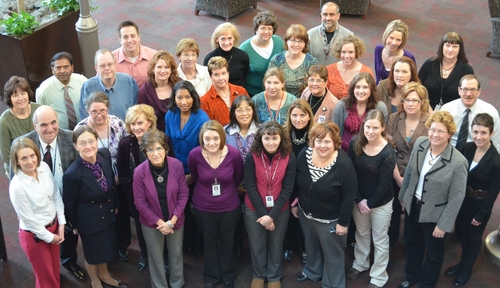Breakthroughs for life.
It’s not just a slogan.
As UNMC and The Nebraska Medical Center look back over 30 years since the first bone marrow transplant was performed here, the breakthroughs and achievements include:
- The adult transplant program, founded by Kearney, Neb., native, James Armitage, M.D., performing its first bone marrow transplant on April 1, 1983.
- The pioneering of stem cell transplantation in 1984 by Anne Kessinger, M.D., of Scribner, Neb. The therapy is now standard practice around the world.
- The launch of the pediatric transplant program in 1987 by Peter Coccia, M.D.
- An array of impactful clinical studies and drug trials.

|
|
Since its inception, the program has performed 4,460 transplants in patients from all 50 states and more than a dozen countries – 4,043 transplants in adults and 417 in children. Most adults have sought the treatment for cancers of the blood; in particular, lymphoma, leukemia and multiple myeloma. Pediatric transplants normally are performed for patients with more aggressive diseases such as acute lymphoblastic leukemia.
“We have an extraordinary team dedicated to improving cancer treatment and care. Their work has increased survival substantially in patients,” said Julie Vose, M.D., chief of the UNMC Division of Hematology/Oncology and the Neumann M. and Mildred E. Harris Professor. “Through the efforts of many, people now have access to some of the best cancer treatment in the world right here in Omaha.”
The medical center’s expansive cancer research program has been responsible for advancing knowledge and treatments, said Dr. Vose, who is a physician on staff at The Nebraska Medical Center. Researchers receive funding from a variety of sources, including the National Institutes of Health, and collaborate with some of the top cancer centers in the world such as MD Anderson Cancer Center, Dana-Farber Cancer Center and others.
“We learn through our encounters with patients and our clinical trials,” Dr. Vose said. “Our experience not only helps our current patients but also will help future patients five or 10 years down the road.”
With the construction of a comprehensive cancer center on campus scheduled for completion in 2016, the campus will add an outpatient clinic where patients can access all their cancer needs; a 98-lab research tower; and a hospital with up to 108 beds.
“We’re excited to take the next step to advance our work for better treatments and improve the quality of life for those with cancer,” Dr. Vose said.
